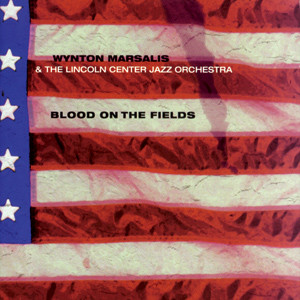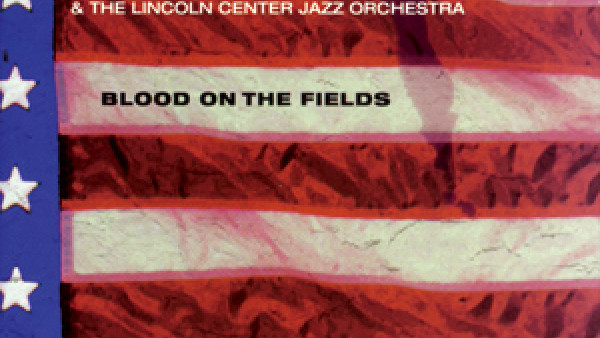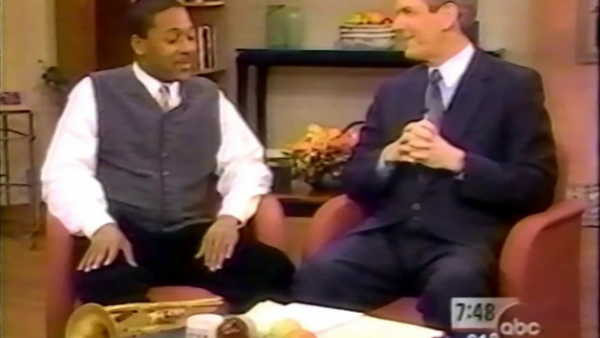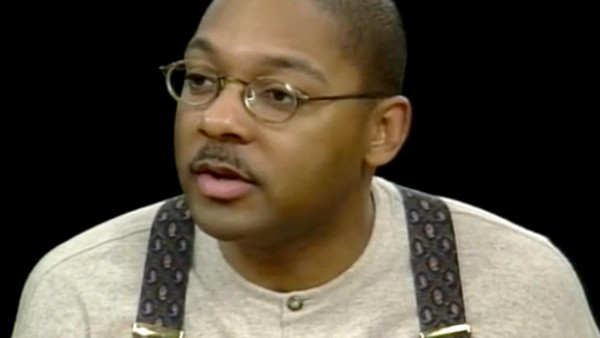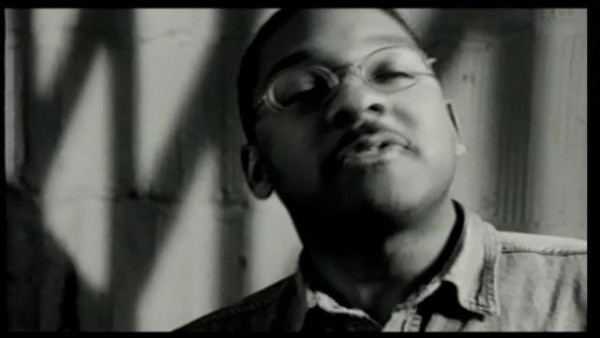Revioew - Wynton Marsalis’ “Blood on the Fields”, Still Genius
A few weeks ago I had the experience—full of both promise and tension—of revisiting a piece of art that I once thought truly great. The fear, of course, is that such things cannot live up to your memory and hopes. Is anything ever as wonderful as it seemed when you first fell in love with it?
Ah, but some things are. Some things are sublime. Some things are sweeter over time.
A First Love
Wynton Marsalis’s three-hour jazz oratorio, Blood on the Fields, won the 1997 Pulitzer Prize for music—a first for a jazz composition. I saw it performed around that time at Washington, DC’s Warner Theater, which was after it was debuted at Lincoln Center in 1994. I arrived at the concert with a dozen of my music students and insanely high expectations: I had been listening to the recording (featuring the voices of Cassandra Wilson, Jon Hendricks, and Miles Griffith) for a while, and all three were on hand with the composer and his Lincoln Center Jazz Orchestra. Our breaths were stolen.
Blood on the Fields was classic Marsalis: a work that was serious and wildly ambitious—and potentially a great heap of pretention. Marsalis set out to chronicle American slavery by telling the story of a couple, from their travels to the US over the Middle Passage to a brave defiance of servitude, to brutal punishment and hatred, to a form of transcendence, love, and eventual escape. The music, on the surface, was mainly Ellingtonian, but it also reached for a full history of jazz, from field hollers and blues, to Tin Pan Alley ballads, to the cries and rumbles of more modern, more free jazz. And the lyrics had little choice but to go right at the topic: addressing the physical pain of the slave ships, the dehumanization of slave auctions, the anger of black Americans as the country that was imposed on them, religion, and the absurdity of hope.
When I first heard it performed, I simply hadn’t heard a jazz musician in my lifetime try something at this level of difficulty. I’d heard brilliant solos, edgy combinations of tonality and atonality, strange instrumentations, all sorts of tricky stuff. But Blood on the Fields was trying something even more daring. Marsalis was trying to fly beyond the usual with a combination of tradition and experimentation while also addressing politics, history, and the internal human struggle. I mean, I was embarrassed just to like it, it was so potentially full of itself.
But I loved it. As weighty as it was, Blood on the Fields was melodic and fleet, with a huge array of different grooves. The singers were distinctive and ripe: Wilson’s mahogany contralto, Griffith bringing a desperate, raspy cry (“Yooooou don’t heeeeear no druuuums, womaaaaan!”), and Hendricks utterly himself in his cheek and his scatting even as he took on different characters. In concert, the band brought an amazing combination of gravitas and loose joy to their playing.
As I left the concert hall with the students, there wasn’t a soul among us who hadn’t traveled six thousand miles through the music that night. “My life just changed”, one student told me. Who could disagree? The Pulitzer was hardly enough recognition.
A Second Look
And then I didn’t listen to Blood on the Fields for about 15 years. Why? Perhaps because it is a three-CD box set. Perhaps because listening to just part of it seems silly. Perhaps because Wynton Marsalis’s standing since 1997 had both risen—he is the unquestioned Most Established Man In Jazz, King of Jazz at Lincoln Center, and Composer of Many Crazy-Long Works—and also fallen. If Wynton once seemed like a youngish guy who was trying, audaciously, to bring jazz to the next level, in recent years he has seemed both nicked by time (dropped by a record label, for example) and a little stodgy.
Which isn’t exactly right. He and his band (and the Jazz at Lincoln Center Orchestra) have been playing up a storm, collaborating (with Willie Nelson, with Eric Clapton, but also playing jazz, you bet), and educating. But still, I was getting along just fine without Wynton—and without remembering Blood on the Fields.
But when a weekend in New York coincided with the first performance of the work in more than 15 years, well… I went out of my way to get tickets. If only to find out if I was still in love.
Aside from Wynton, almost every musician was new. The female lead, Leona, was now sung by Paula West, also using a rich deep tone but having a cleaner and more expressive upper range than Wilson. The male hero, Jesse, was sung by Kenny Washington, another voice with a clean and limber cry and with an impressive ability to fly with the band when scatting. Gregory Porter took Hendricks’ roles, puckish and bright, also scatting like a master.
As we sat down in the Rose Theater, the lights didn’t entirely dim. This may have been to allow us to read the libretto, printed in the program (though every lyric was easy to hear in the Rose’s perfect acoustics), but it may have also been to let us all see each other (and to see ourselves) over the course of the music. Because one thing Blood on the Fields had not lost was the ability to make you look at yourself, even with slavery seemingly far in the past, and ask what your relationship is to the institution and its (continuing) history.
The band was never shy or hesitant. They played as if Blood on the Fields had been in their repertoire every night for a decade. Sherman Irby’s alto sax was as ripe as a late summer peach. Special guest pianist Eric Reed was used sparingly but brought a joyful energy to every note, bouncing with jazz history one minute and playing moody abstractions the next, constantly finding holes in the sound of the score to fill. Carlos Henriquez (bass) and Ali Jackson (drums) were a constantly coiling and unspooling duo, setting up the insistent rhythms that Blood should be better known for. Jackson’s persuasion with his tambourine alone ought to get a Pulitzer.
But for pure playing, there was Wynton. He is, of course, an unparalleled trumpet player. And most people know that he long ago supplemented his impeccable range and technique with a vocabulary of smears, growls, and vocalisms that make him as expressive and “dirty” as any of his New Orleans forebears. But on this Saturday night, playing a small number of feature spots in his greatest composition (because mostly he was conducting), he was in another realm. His playing was carefully synced to the score and band, of course, but it also floated beyond the score with expressive independence. I have never heard Marsalis so free and expressive. He played patterns outside the standard harmonies as he felt them, but he also whipped his lines back inside the lines at the last moment, creating a sense of thrill, like a magician pulling an untouched assistant out of a box riddled with swords.
A Great Performance, A Great Piece of Art
Seeing Blood on the Fields for the second time after so long confirmed that the work itself is brilliant, quite beyond a single performance.
Just as when I first experienced it, Blood on the Fields caught me up as a narrative, tersely but movingly conveyed. Even as Jesse is subjugated, he thinks of himself as the prince he used to be, and he dreams of commanding his own slaves. Leona needs Jesse’s strength but knows that it may be his downfall. But when he “softens”, she wonders if he will still be attractive to her.
But as with all great works of art, Blood on the Fields succeeds because it is an ideal conjunction of content and form. The music swings with joy, it sways with sex, it laments in blue tones, and it dances. It lives fully as a total history of jazz from Armstrong to Coltrane and beyond, and so it represents the true flowering of the dark legacy as it was reversed and redeemed by African-American imagination and achievement. Hearing the music as the capsule for the story of Jesse and Leona, the listener gets the joyful benefit of knowing that so much pain could be converted into brilliance eventually—the real blues lesson.
For anyone in the audience going through a hard time, and in some sense that could be and probably was every one of us, Blood on the Fields was advice and guidance; it was hope. When the lyrics of “Chant to Call the Indians Out” speak of “heal[ing] this wounded land”, the piece reaches out universally. As that section moves into a plaintive melody for fiddle over jazz piano, Blood on the Fields even seems larger than jazz and certainly larger than just one jazz trumpeter named “Wynton”. There is escape from pain and limit, it tells us, but only if we are humble. There is love to be found even amidst difficulty, but it exists because we are all imperfect. And the saxophones play with beauty, and the drums push every lick of the music into reverie, and the singers let go of their perfection to sound more human whenever they can.
At the conclusion of Blood on the Fields, the band sets up a New Orleans parade groove and begins stepping, moving off the stage in triumph, slowly: “Freedom’s in the trying, you just walk on through the door”. And the whole of the Rose Theater crowd had to do the same. We applauded for many minutes, on our feet, as we watch the musicians themselves parade behind the stage’s partly transparent back wall, clapping and chanting “Oh-ohhh, Lord!” and then we did, indeed, walk on through the door.
And you come out a different person than you were when you walked in. You’re lifted up by something great. And in this case, you wind up with your faith restored in something still being great over time, which really is the only kind of great that matters.
Blood on the Fields could change you. Even as it stays wonderfully the same.
by Will Layman
Source: PopMatters

